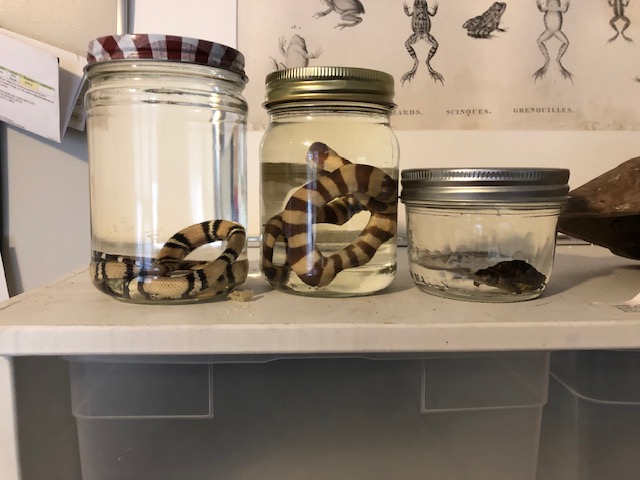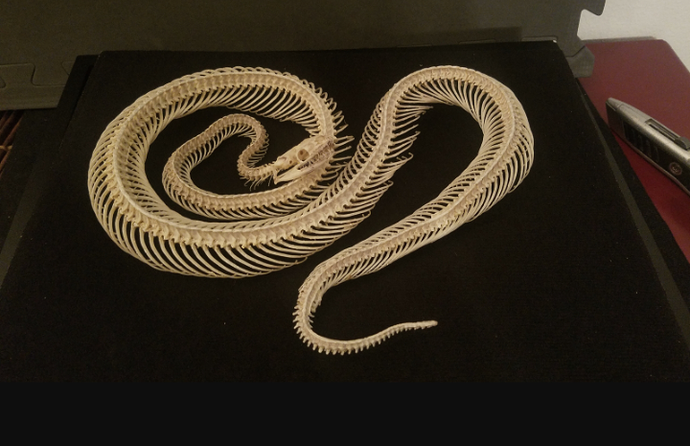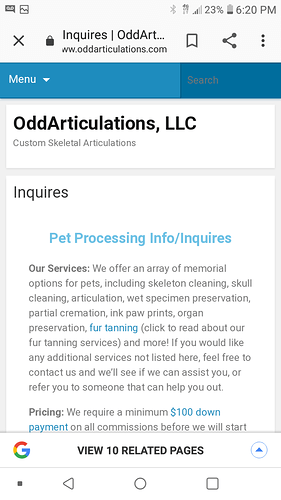This actually lead to a separate thread I think we need. Within a few years we are going to come across alot more people losing animals to old age. Some sort of “support/ how to deal with the body” suggestions.
I know a few people who do taxidermy and preservations of other kinds.
That would be an…interesting way to go.
So 20 years from now I could have a “wall of fame” of all my original breeders and their career egg laying stats on a plaque by them?
Kinda depressing to think about lol. I would probably see how I could donate them locally to science in some way or another.
I think we have found the Jeffrey Dahmer of the snake world here guys  .
.
It is a very interesting route I never thought of with snakes.
Sounds morbid but would be kind of awesome for high school kids to get disect some pythons. I would reserve the taxidermy for only very impressive animals like a large retic or water monitor. If you have several could make an awesome museum donation and it would be deductible lol.
Yeah for sure I mean I wouldn’t care to dissect one of my own snakes because of the sentimental value but that would be a great opportunity for a biology class I’d definitely contact any local high school or community college and ask if they were interested.
I see where your going with it now, not so Norman Bates-ey  .
.
What would you recommend with a animal that has passed from infection/parasites/illness. Do you think it would be useable in a research environment, as a way to better understand these issues?
Maybe freeze and contact the nearest university with a zoological program to see.
They gotta museum of bones in Orlando and they have a ball python skeleton that is so dope and I’m sure SOMEONE does it but it probably cost more than I would pay but it would be supee cool
Or just get a caiman? Every house needs a crocodilian right?
If you own your own property you can always go and just bury a snake. Or could always cremate it yourself as well. We recently lost one to illness after an almost 3 month fight and we ended up going to one of the large fields that surround our apartments and buried her deep.
We have plenty of land so if something dies we take it to the back corner so the wind doesn’t blow the smell to the house. Fish, cats, dogs, goats, sheep, whatever happens. Scavengers have to eat too.
I don’t like the idea of a stray dog or cat digging up and dragging around the body of my own pet. So we dig really deep. But then we only have snakes and not any livestock.
If I lose a fairly small animal, such as a hatchling that doesn’t make it, I usually preserve it in alcohol.
Do you have any pictures of that and how well does it work preservation-wise?
If I have hatchlings that dont make it I usually feed them off to other herps.

Here are some preserved specimens. From the left they are: Sardinal Stuart’s Milksnake, Bismarck Ringed Python, Three-Toed Box Turtle. As you can see, they lose color when preserved. The snakes have been preserved for 2-3 years, the turtle has been preserved for less than a year. All specimens are in good shape.
That’s really a lot less creepy than I was expecting. Do you take them to shows for education or is it just a personal decoration.
Have you found any practical uses of keeping them preserved?

